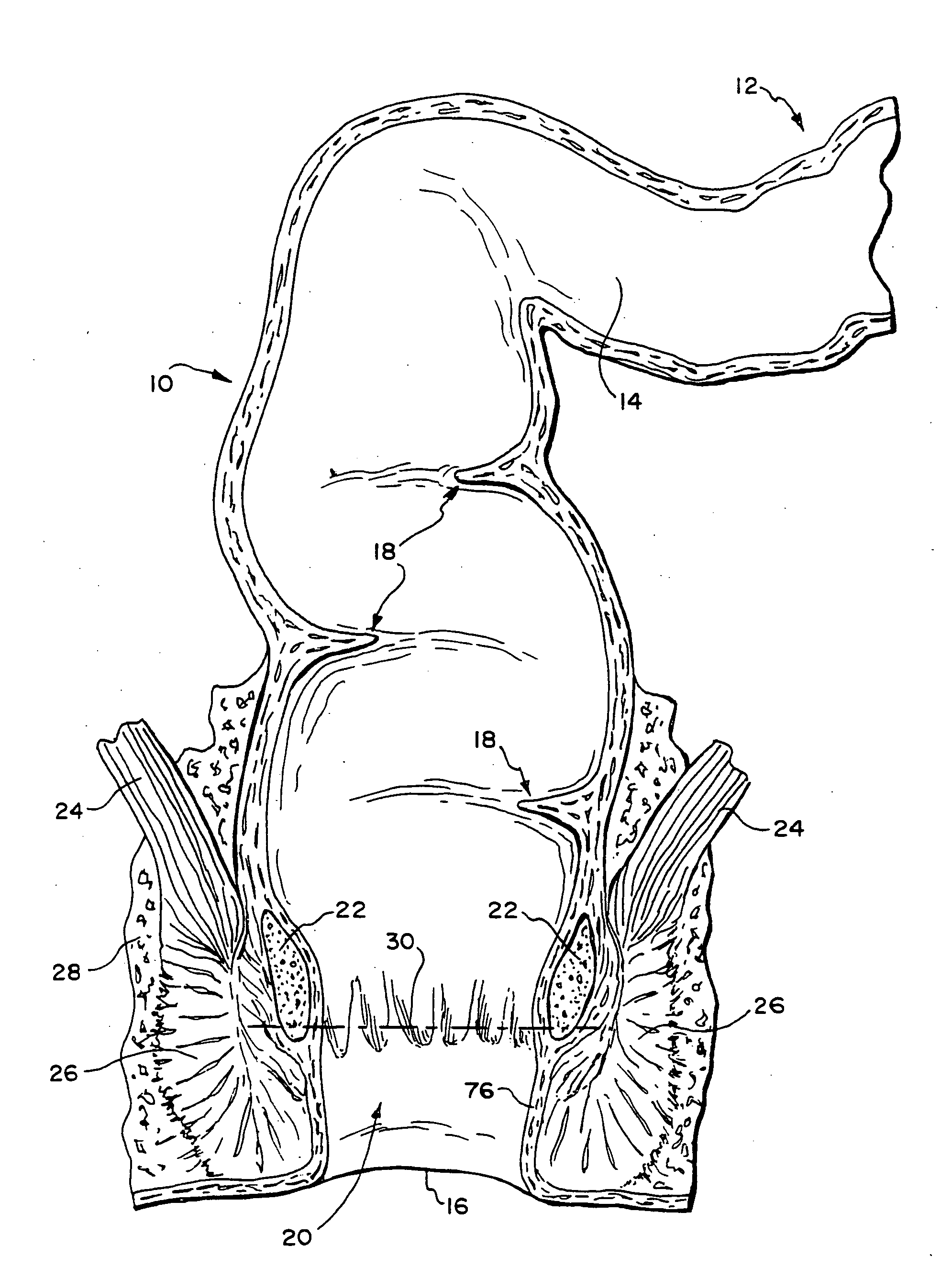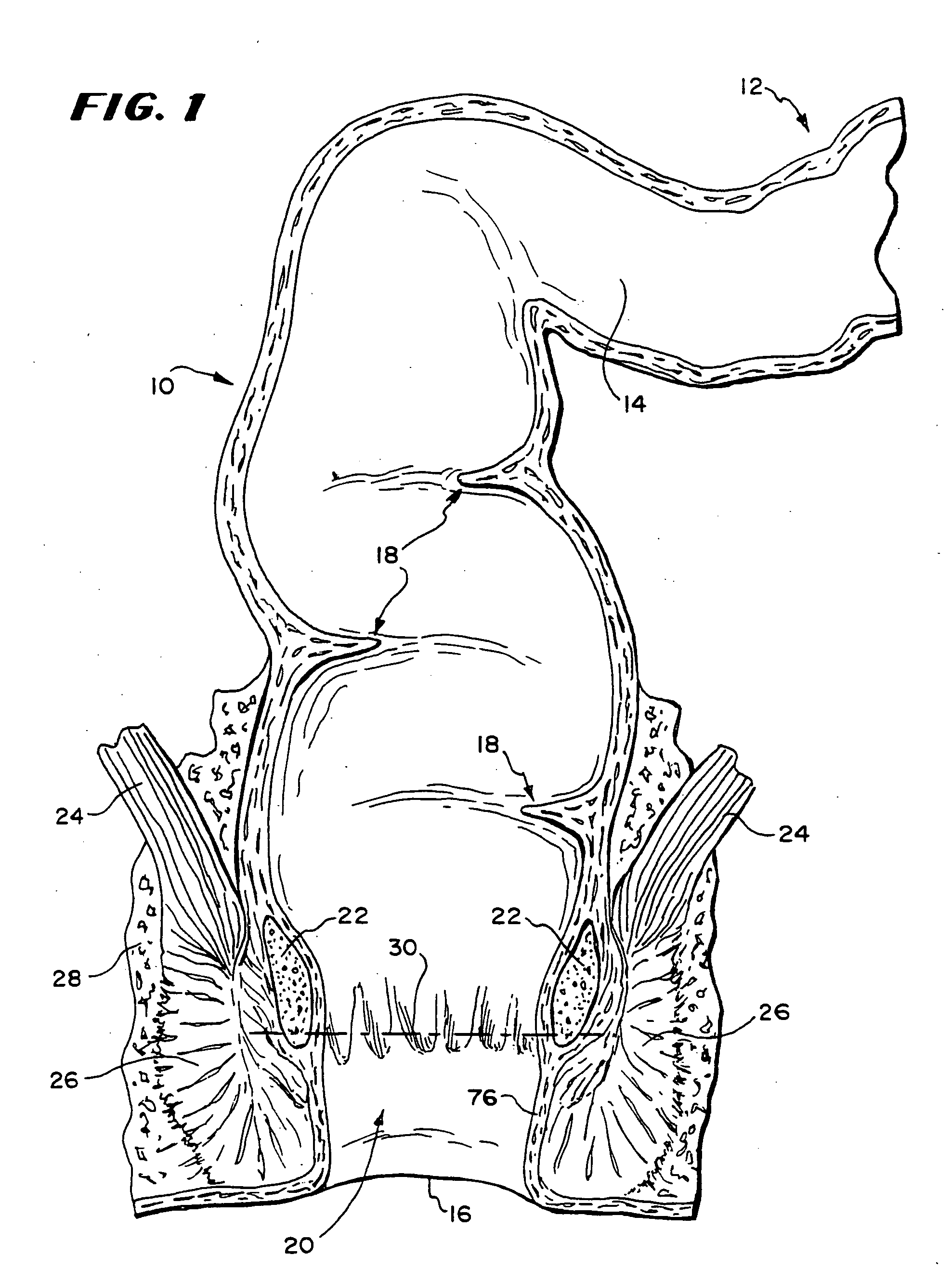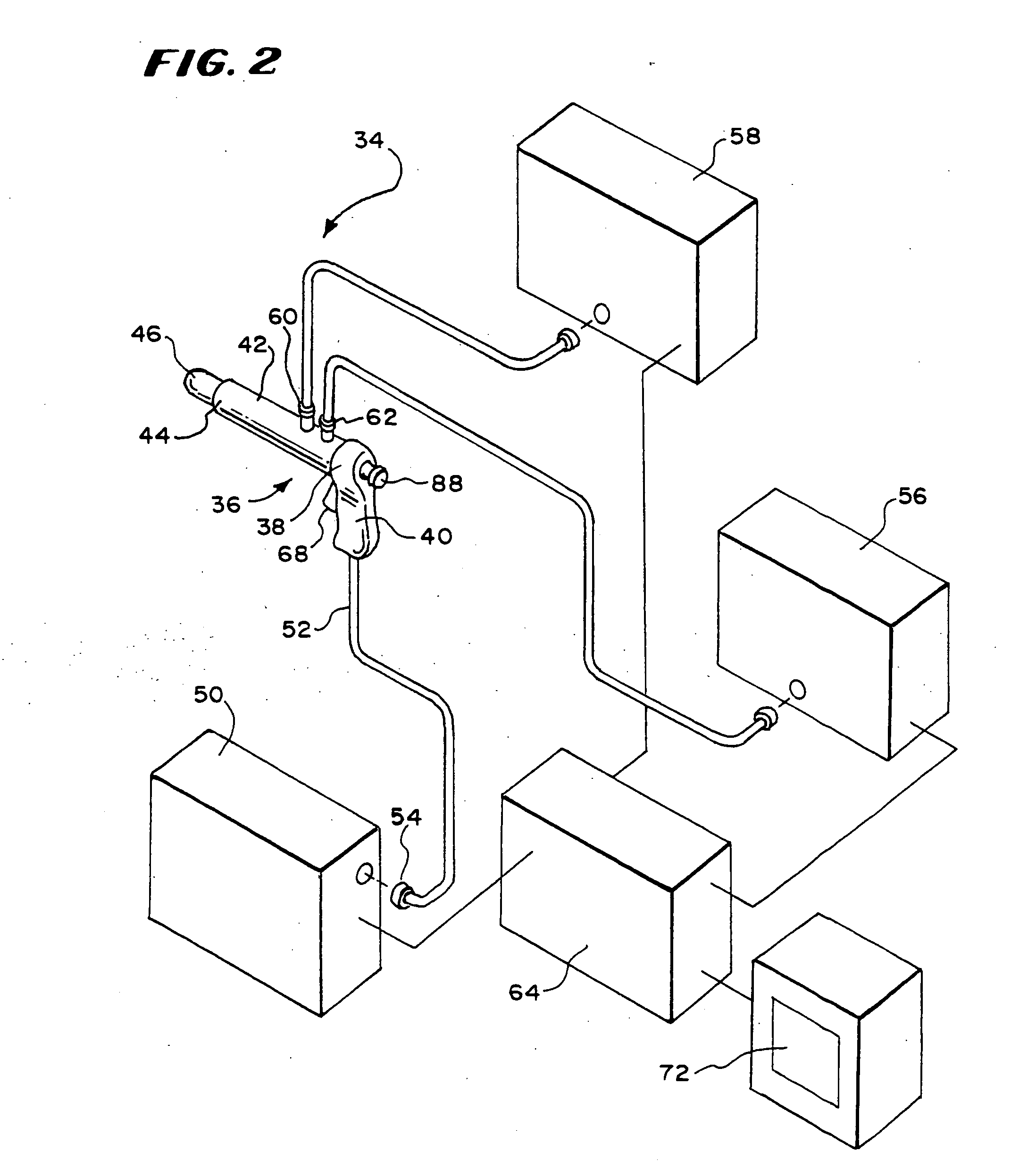Method for treating fecal incontinence
- Summary
- Abstract
- Description
- Claims
- Application Information
AI Technical Summary
Problems solved by technology
Method used
Image
Examples
Embodiment Construction
[0052]This Specification discloses various catheter-based systems and methods for treating dysfunction of sphincters and adjoining tissue regions in the body. The systems and methods are particularly well suited for treating these dysfunctions in the lower gastrointestinal tract, e.g., in the intestines, rectum and anal canal. For this reason, the systems and methods will be described in this context.
[0053]Still, it should be appreciated that the disclosed systems and methods are applicable for use in treating other dysfunctions elsewhere in the body, e.g., for restoring compliance to or otherwise tightening interior tissue or muscle regions. The systems and methods that embody features of the invention are also adaptable for use with systems and surgical techniques that are not necessarily catheter-based.
I. Anatomy of the Rectum and Anal Canal
[0054]As FIG. 1 shows, the rectum is the terminal part of the large intestine 12. The rectum 10 extends from the sigmoid flexure 14 (which is...
PUM
 Login to View More
Login to View More Abstract
Description
Claims
Application Information
 Login to View More
Login to View More - R&D
- Intellectual Property
- Life Sciences
- Materials
- Tech Scout
- Unparalleled Data Quality
- Higher Quality Content
- 60% Fewer Hallucinations
Browse by: Latest US Patents, China's latest patents, Technical Efficacy Thesaurus, Application Domain, Technology Topic, Popular Technical Reports.
© 2025 PatSnap. All rights reserved.Legal|Privacy policy|Modern Slavery Act Transparency Statement|Sitemap|About US| Contact US: help@patsnap.com



